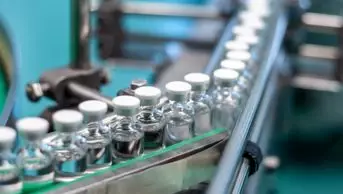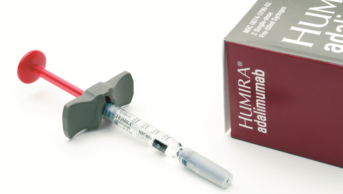
Courtesy of British Generic Manufacturers Association
NHS England has set out plans to accelerate and widen the NHS’s use of biosimilars to cut up to £300m a year from the drug bill by 2021.
According to a new commissioning framework for biological medicines (including biosimilar medicines) from NHS England published on 12 September, the aim is for at least 90% of new patients to be prescribed the best value biological medicine within 3 months of launch of a biosimilar medicine, and at least 80% of existing patients within 12 months.
Six of the ten most prescribed medicines in hospitals by overall cost are biological products for conditions from cancer through to chronic inflammatory conditions such as rheumatoid arthritis and inflammatory bowel disease.
Many biological medicines are coming off patent and much cheaper biosimilars are also becoming available. This often results in the price of the original drug falling dramatically. For example, the cost per defined daily dose for infliximab has fallen by nearly two-thirds from £16.80 to £6.84 following the introduction of biosimilars.
The new framework says: “Increased competition between biological medicines has the potential to deliver significant savings of at least £200m to £300m per year by 2020/2021 through increased uptake of the best value biologic medicine, including biosimilars.
”Such action will help the NHS to maximise the value for patients from the amount it spends on these medicines and enable much-needed headroom for funding innovative treatments and/or improvements in pathways of care.”
Warwick Smith, director general of the British Biosimilars Association, said: “Competition from these life-saving and life-enhancing medicines is already helping the NHS treat more patients and this will only increase as further biosimilar medicines become available.”
He added: “As more biosimilar medicines become available to treat complex diseases such as cancer, we expect uptake to accelerate further as clinicians and prescribers are more used to working with these medicines, which are proven to have no clinically meaningful differences to the originator product in terms of safety, efficacy and quality.”
Existing biosimilars now in widespread use include biosimilars infliximab and etanercept. Biosimilar infliximab came on to the market in March 2015 and is currently being used by 80% of patients who would have been treated with infliximab for rheumatology conditions and inflammatory bowel disease. Biosimilar etanercept, which became available in April 2016, is used to treat rheumatology conditions and is prescribed to 58% of patients.
Switching to just these two biosimilars has saved the NHS approximately £160m per annum.
Biosimilars rituximab and adalimumab are among those which offer potential for future NHS savings. Rituximab, a medicine that treats cancer and rheumatoid arthritis, became available in April 2017 and biosimilar adalimumab will become available in 2018. Adalimumab is used to treat rheumatology conditions and inflammatory bowel disease and was the most expensive overall drug cost for hospitals in 2015/2016, coming in at more than £300m.

